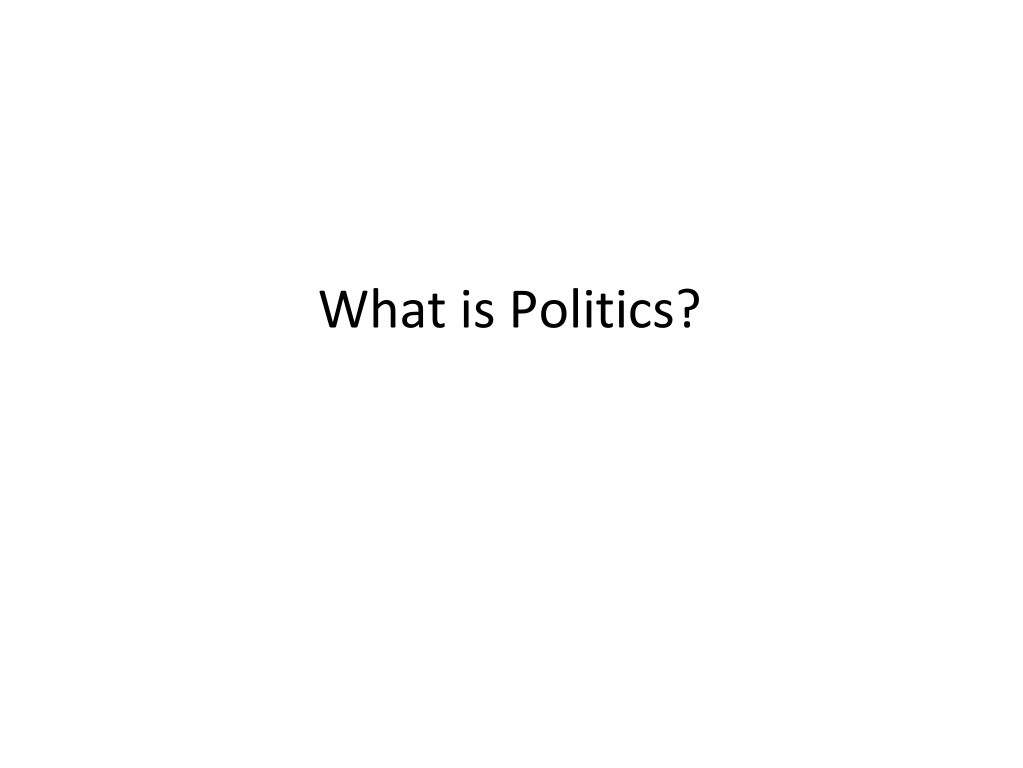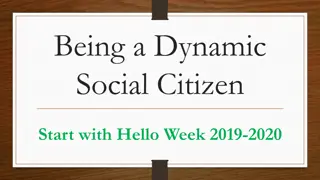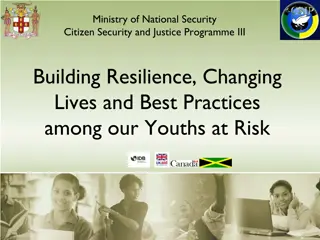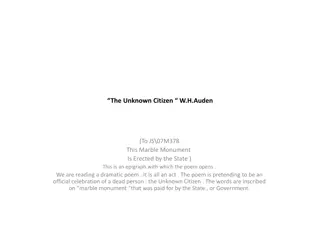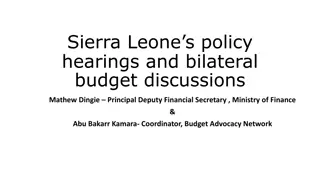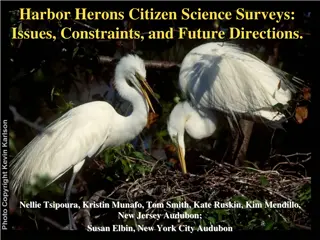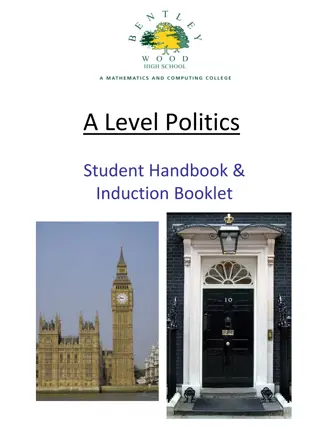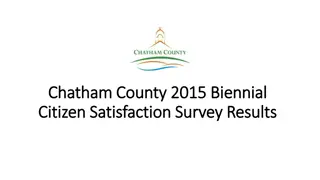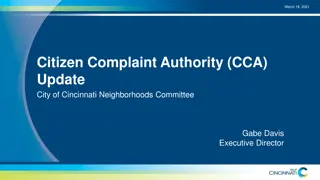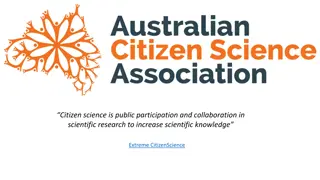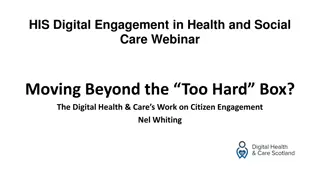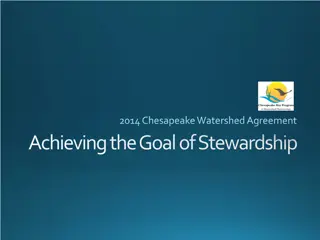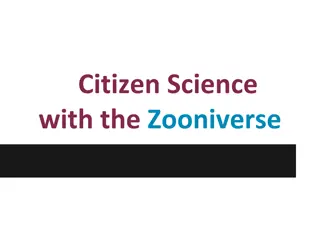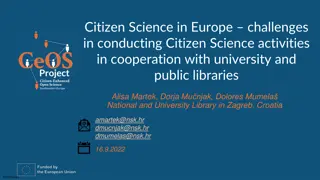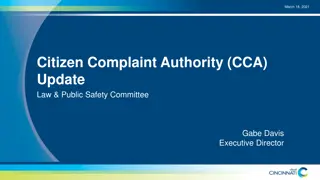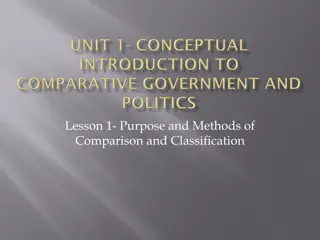Understanding Politics and Citizen Response to Change
Politics involves the use of power and influence in human behavior. Citizens react to negative changes in different ways, such as accepting change, voicing concerns, or remaining loyal. The government's actions impact citizen responses, influencing whether they exit, voice their opinions, or show loyalty in response to changes like tax increases or bans on certain items. Knowing how citizens perceive government actions helps predict their reactions to environmental changes.
Download Presentation

Please find below an Image/Link to download the presentation.
The content on the website is provided AS IS for your information and personal use only. It may not be sold, licensed, or shared on other websites without obtaining consent from the author. Download presentation by click this link. If you encounter any issues during the download, it is possible that the publisher has removed the file from their server.
E N D
Presentation Transcript
Politics is the subset of human behavior that involves the use of power or influence. Power is involved whenever individuals can t accomplish their goals without either trying to influence the behavior of others or trying to wrestle free from the influence exerted by others.
Who has power, where does it come from, and when is it used?
How will a citizen react to a negative change in their environment? The government increases taxes. The government imposes a ban on handguns. The Supreme Court rules that prayer in public schools is unconstitutional. The quality of peaches at their local fruit stand declines.
Exit: Accept the negative change but alter ones behavior to optimize in the new environment. Voice: Do not accept the negative change and seek to persuade the government to reinstate the original environment. Loyalty: Accept the negative change and make no change to one s pre-existing behavior.
Stimulus Exit Voice Loyalty The government increases taxes. Reallocate portfolio to avoid tax increase Continue to pay taxes, keep your mouth shut Organize tax revolt There is a decline in the quality of peaches at the local fruit stand. Buy mangoes, or buy peaches somewhere else Complain to the store owner Continue to eat peaches, keep your mouth shut The Supreme Court rules that prayer in public schools is unconstitutional. Homeschool your children Lobby the government to change the Constitution Keep your children in the public school system, keep your mouth shut Your state outlaws handguns. Move to a different state Join the NRA or a militia group to put pressure on the state to allow handguns Turn in your handguns, keep your mouth shut
So, how should the citizen react to the negative change in their environment?
So, how should the citizen react to the negative change in their environment? Much presumably depends on what the citizen thinks the government will do.
Respond: Respond positively and reinstate the original environment. Ignore: Ignore the citizen and maintain the new environment.
Game theory is a fundamental tool for analyzing strategic situations. In a strategic situation, the choices of one actor depend on the choices made by other actors. We can think of the decisions to be made by the citizen and the government as a game.
A game is a situation in which an individuals ability to achieve their goals depends on the choices made by other actors. Games have players and rules about how decisions are made. The basic rule is that players choose to do what they believe is in their best interest.
The interests of the players are reflected in the payoffs associated with each of the possible outcomes in a game. Players prefer outcomes with higher payoffs.
Two common ways of modeling strategic interactions: Extensive Form Games sequential choices. Normal Form Games simultaneous choices.
2 Player 1 L R Left Right 3, 3 1, 4 U Player 2 2,0 1 Left Right 4, 1 2, 2 D 3, 1 2, 2 Extensive Form Game Normal Form Game
An extensive form game consists of choice nodes linked in a sequence. A choice node is a point in the game at which a player must choose an action. The initial node is the place where the game begins. The branches represent the actions that can be taken at the choice nodes. A game tree is the entire specification of choice nodes, branches, and payoffs.
Prehistory . . . There s been a negative shock resulting in a transfer of some benefit from the citizen to the government. The negative shock might be a tax increase. Citizen must decide whether to exit, use voice, or remain loyal.
O1: Government keeps benefit; citizen opts for some substitute O2: Government keeps benefit; citizen suffers loss Citizen Loyalty Exit Voice Government Respond Ignore Citizen O3: Government returns benefit to citizen Exit Loyalty O4: Government keeps benefit; citizen opts for some substitute O5: Government keeps benefit; citizen suffers loss
Turning Outcomes into Payoffs Outcome Description Citizen Government The government keeps the benefit but loses the support of the citizen. The citizen opts for some substitute. O1 1 E The government keeps both the benefit and the support of the citizen. The citizen suffers their loss in silence. 1 + L O2 0 The government returns the benefit to the citizen and keeps their support. 1 c O3 L The government keeps the benefit but loses the support of the citizen. Having used their voice, the citizen opts for some substitute. O4 1 E c The government keeps both the benefit and the support of the citizen. Having used their voice, the citizen suffers their loss. 0 c 1 + L O5
Loyalty Citizen Exit E, 1 0, 1 + L Voice Government Respond Ignore Citizen 1 c, L Exit Loyalty E c, 1 0 c, 1 + L
A rational player does what they believe is in their best interest given what they know at the time. A subgame perfect equilibrium is an important solution concept for extensive form games in which all actors do the best they can at every point where they could possibly make a decision.
A subgame perfect equilibrium can be found using a method known as backward induction. Backward induction is the process of reasoning backward, from the end of the game or situation to the beginning, in order to determine an optimal course of action.
Scenario 1 Loyalty Exit Citizen E, 1 0, 1 + L Voice Government Respond Ignore Citizen 1 c, L Exit Loyalty E c, 1 0 c, 1 + L
Solving the EVL Game when the citizen has a credible exit threat (E > 0): Step 1 Scenario 1 Loyalty Exit Citizen E, 1 0, 1 + L Voice Government Respond Ignore Citizen 1 c, L Exit Loyalty E c, 1 0 c, 1 + L
Solving the EVL Game when the citizen has a credible exit threat (E > 0) and the government is dependent (L > 1): Step 2 Scenario 1 Loyalty Exit Citizen E, 1 0, 1 + L Voice Government Respond Ignore Citizen 1 c, L Exit Loyalty E c, 1 0 c, 1 + L
Solving the EVL Game when the citizen has a credible exit threat (E > 0), the government is dependent (L > 1), and E < 1 c: Step 3 Scenario 1 Loyalty Exit Citizen E, 1 0, 1 + L Voice Government Respond Ignore Citizen 1 c, L Exit Loyalty E c, 1 0 c, 1 + L
Solving the EVL Game when the citizen does have a credible exit threat (E > 0), the government is dependent (L > 1), andE < 1 c Scenario 1 Exit Loyalty Citizen E, 1 0, 1 + L Voice Government Respond Ignore Citizen 1 c, L Exit Loyalty E c, 1 0 c, 1 + L Subgame perfect equilibrium: (Voice, Exit; Respond) Observed outcome: Citizen uses voice and government responds. Payoffs: Citizen obtains 1 c and government obtains L.
Solving the EVL Game when the citizen does not have a credible exit threat (E < 0), the government is dependent (L > 1), andE < 1 c Scenario 2 Exit Loyalty Citizen E, 1 0, 1 + L Voice Government Respond Ignore Citizen 1 c, L Exit Loyalty E c, 1 0 c, 1 + L Subgame perfect equilibrium: (Loyalty, Loyalty; Ignore) Observed outcome: Citizen remains loyal. Payoffs: Citizen obtains 0 and government obtains 1 + L.
Solving the EVL Game when the citizen does have a credible exit threat (E > 0), the government is autonomous (L < 1), andE < 1 c Scenario 3 Exit Loyalty Citizen E, 1 0, 1 + L Voice Government Respond Ignore Citizen 1 c, L Loyalty Exit E c, 1 0 c, 1 + L Subgame perfect equilibrium: (Exit, Exit; Ignore) Observed outcome: Citizen exits. Payoffs: Citizen obtains E and government obtains 1.
Solving the EVL Game when the citizen does not have a credible exit threat (E < 0), the government is autonomous (L < 1), andE < 1 c Scenario 4 Exit Loyalty Citizen E, 1 0, 1 + L Voice Government Respond Ignore Citizen 1 c, L Loyalty Exit E c, 1 0 c, 1 + L Subgame perfect equilibrium: (Loyalty, Loyalty; Ignore) Observed outcome: Citizen remains loyal. Payoffs: Citizen obtains 0 and government obtains 1 + L.
Summary of Subgame Perfect Equilbria and Outcomes The Government Is autonomous Is dependent The citizen (L < 1) (L > 1) Has a credible exit threat (E > 0) (Exit, Exit; Ignore) Outcome 1 (Voice, Exit; Respond) Outcome 3 Has no credible exit threat (E < 0) (Loyalty, Loyalty; Ignore) Outcome 2 (Loyalty, Loyalty; Ignore) Outcome 2
The government responds positively to voice only if 1. the citizen has a credible exit threat and 2. the government is dependent on the citizen. Think about what this means for your life!
In the absence of a credible exit threat, the citizen is a sitting duck! The government can take away their benefits, and there s nothing they can do about it but accept the new state of affairs.
Its sometimes difficult to draw inferences from real-world observations. While it s always possible to infer the citizen s type by observing their actions, this isn t the case with the government. Voice, or the lack thereof, can t be taken as a straightforward revelation of citizen preferences.
Why would a dependent state ever take a benefit away from citizens with credible exit threats?
Why would a dependent state ever take a benefit away from citizens with credible exit threats? It wouldn t!
Power isnt always observable. This poses a big problem for empirical political science. When power is most potent, it s least likely to be used. Voice Power. Presidential vetos.
Structural dependence of the state on capital. Different economic sectors. 2008 US Bailout, click here
The model suggests that citizens use voice only when its effective. But we often see governments ignoring citizens who are protesting. Why?
The model suggests that citizens use voice only when its effective. But we often see governments ignoring citizens who are protesting. Why? 1. Voice may be a benefit rather than a cost.
The model suggests that citizens use voice only when its effective. But we often see governments ignoring citizens who are protesting. Why? 1. Voice may be a benefit rather than a cost. 2. Incomplete information.
